Personalization is one of the most important elements of a company aiming to connect with the customers in the world of digital marketing that keeps on changing with time. Customers now seek individualized services, discounts, and content that is relevant to the customer and answers his/her particular requirements. In comes Artificial Intelligence (AI), one of the powerful technologies that have transformed how businesses are providing customized marketing provisions and improve consumer experiences.
AI is not merely a buzzword anymore but an essential constituent of the contemporary marketing strategy. By combining the power of AI-based tools and methodology, companies now have full access to enormous data volumes to develop an in-depth understanding of customer behaviours, preferences and buying patterns. In turn this helps them push very specific and relevant content that will appeal to each customer.
What Is Personalized Marketing?
Personalized marketing is the act of segmenting the marketing message, marketing offers, and marketing content based on customer behaviours, preferences and requirements. It entails our knowing how people are going to become buyers of our products, to provide the right message to that individual at the right time, to make a more meaningful connection of the business and the individual.
To give an example, the moment you enter an online store and can see recommendations of some goods, which you have tried in the past, that is personalized marketing influence. Successful personalized marketing hinges on the opportunity to utilize data and develop more personalized experiences.
How AI Powers Personalized Marketing
AI is an invaluable tool in the process of tailoring to marketing as it allows the analysis of large datasets and automates decision-making. The speed of data processing and analysis with the help of AI provides companies with an opportunity to produce more fine-tuned, topically significant marketing messages to the customers. Let us take a look at the various applications of AI in personalized marketing:
1. AI and Consumer Data
Systems using artificial intelligence utilize consumer information to acquire knowledge of individual actions. This information can contain:
-
Behavioral Data: The way users communicate with site, application, and email.
-
Transactional Data: Previous transactions and expenditures.
-
Demographic Data: Such as Age, Gender and Location.
-
Contextual Data: Temporal, device and browser behavior.
Using such pieces of data, AI can enable businesses to gain a better understanding of their customers. Thus make more precise predictions about their interests and requirements.
2. Personalized Recommendations
Personalized recommendations are one of the most effective AI applications used by marketers. The AI-enabled recommendation engines use consumer patterns to recommend goods, services, or content that are of interest to the users and responsive to their previous interaction.
As an example, streaming services such as Netflix or Spotify leverage AI to recommend a show, movie or song based on the history of what the user has watched or listened to in the past. Likewise, websites that use e-commerce such as Amazon will recommend products to you depending on what you viewed, what you bought and it continues to the patterns of customers of the same profile. These user-specific suggestions do not only enhance the user experience, but they also increase conversion and sales.
3. Dynamic Content Personalization
AI enables companies to dynamically personalize the content used in websites, emails as well as advertisements. According to real-time information, AI systems have the ability to tailor the content so as to suit the likes and actions of an individual. Through AI, the home page of a site can customize the product offers and discounts shown to a customer who is browsing a certain category of products by placing products that are of particular interest to the buyer on the home page of the site.
This interactive method of content customization guarantees that any customer will never miss what is of prime consideration to them thus making the process more efficient and prompting to further engagement with the brand.
4. Predictive Analytics for Targeted Campaigns
AI enables predictive analytics which uses past data and helps a business to foresee customer behavior in the future. AI uses consumer data patterns to tell a company what the next possible action of a customer will be, buying a product, opening an advertisement, or subscribing to a newsletter.
Business with such predictions will carry out more specific marketing campaigns. To take the example, the AI can identify users who have the greatest chances of the conversion and make tailored offers or discounts to them. It not only increases conversion rates but also assists businesses in organizing the marketing resources in a more efficient way.
5. AI-Powered Email Marketing
Email marketing has benefited dramatically with the use of AI as highly personalized and automated campaign messages are possible. AI has the capability of analyzing the behavior of customers, segmenting email lists, and sending personalized emails based on the specific taste of the customer, their past purchase history, and browsing pattern.
As an example, an automatic personalized reminder about their shopping cart to buy a particular product or with an offer or discount will be sent using an AI-driven email system in case a customer left the cart. Also, AI can automate the time to send the email to the user when they are most likely to open it and respond to it.
Benefits of AI in Personalized Marketing and User Experience
Personalization with the use of AI has a set of advantages that can help a business to increase its marketing efforts and enhance customer experience. These are the benefits that we want to discuss:
1. Enhanced Customer Engagement
AI can help the businesses to connect to their customers in a more meaningful way by providing them with the customised content that can be perceived as more personal. Relevant messaging, offers, and recommendations increase engagement levels because a customer will respond better to a message that appears based on his/her personal interests.
Customized experiences are relevant, and they give customers the feeling that they deserve attention. Also, that the company cares about them, which would raise brand loyalty and recurrent purchases.
2. Improved Conversion Rates
Customers are apt to make decisions when they receive personalized marketing messages. With the assistance of AI, which presents relevant information and deal opportunities, business can increase its conversion rate. Whether to offer them the right product, set timely reminder or personalized discount, AI makes sure the customer gets what he or she needs on time.
3. Increased Customer Retention
Personalization through AI technology is not only capable of attracting new customers but also retaining the old ones. The repeated provision of personalized experiences helps the businesses to establish a deeper connection with the consumers or customers. The individual based communication brings a stronger emotional attachment to the brand resulting into a better rate of retention.
4. Cost-Effective Marketing
Under AI, companies will crack opportunities to optimise their marketing within the accuracy of right audience at right time that delivers right message. This saves money on marketing budgets, which can be used in the best allocation of resources. Predictive analytics also increases cost-efficiency since marketing campaigns will target the most likely ones to translate into conversions.
5. Scalability
Personalization using AI lets companies develop a scalable and high-quality advertising strategy. AI allows enterprises to manage more people by automating the steps of data analysis, customer segmentation, and personalized content delivery hence staying relevant and effective with their marketing strategies.
Benefits of AI in Personalized Marketing and User Experience
| Benefit | Description |
|---|---|
| Enhanced Customer Engagement | AI helps companies in providing personalized content that can be well received due to preferences. |
| Improved Conversion Rates | Customer-specific messages and offers can make them more likely to be taken up. |
| Increased Customer Retention | AI also maintains stronger customer relations by offering customized experiences to businesses. |
| Cost-Effective Marketing | Using AI enables business to send the right message to the right customer, thus eliminating wastage and enhancing ROI. |
| Scalability | Personalization with AI can be easily scaled so that any business will be staying relevant to its customers at scale. |
AI in User Experience (UX)
AI does not only change marketing; it is also revolutionizing the way in which users interact with websites, apps, and digital products. AI-based personal user experiences could help make interactions feel more natural, productive, and fun. So, how does AI improve the user experience:
1. Personalized User Interfaces
The user interface (UI) may be adapted to personal preferences and behavior partly using AI. An AI could use user data to manipulate the design, contents, and features of either a web page or application so as to make it feel more personal. One such scenario would include an e-commerce site, which could optimize the way their products are shown depending upon the history of their surfing that would permit more relevant products to be shown on the homepage.
2. Predictive Search and Recommendations
With the help of AI, search engines can guess what people want before they even complete their typing. Predictive search results make it possible to answer the following question: what will the user most likely want, and AI is able to do so, analyzing past search history and user actions.
3. Voice-Activated Personalization
Voice-based personalization by AI is also changing user experience. Artificial intelligence is a technology that is finding application in the creation of virtual assistants like Siri, Alexa, and Google Assistant, which respond to voice instructions and provide relevant answers based on taste and behavior. The voice search is becoming a critical means to offer a personalized and fast discovery to information, products or services.
Challenges of Implementing AI-Powered Personalization
AI-driven personalization does have numerous advantages but there are a number of pitfalls that business will need to tackle to avoid and make the most of it. To examine some of the challenges, and how companies can deal with them, let us have a look at them.
1. Data Privacy and Security Concerns
Artificial intelligence-based personalization is data-driven-the more the better. To provide personalized experiences, businesses have to analyze and collect data about customers. But this poses a serious concern on the privacy and safety of data. Due to the ever-growing laws of data protection, especially GDPR and CCPA, companies need to make sure that they are open about their customer data gathering, storing and using processes.
Solution: The primary way to resolve such obstacles is to ensure that organisations are aligned with data privacy laws. This will be comprised of securing the consent of the users, anonymizing the data, and stating across data usage. Also, companies should invest highly in cybersecurity to ensure there are no breaches in data concerning the customers or their data is accessed by strangers.
2. Data Quality and Accuracy
Effectiveness of AI in personalized marketing and user experience is highly dependent on quality data. Garbled, incomplete or out-of-date data can result in bad personalisation and otherwise poor experiences on-board. Case in point, recommendation engine that has been trained using incorrect data could suggest to customers irrelevant items, with a result of dissatisfaction on the part of customers.
Solution: Companies are advised to invest in data cleaning and validation procedures to provide quality and accuracy of the data that is being utilized to the AI-powered personalization. And the integrity of the data could be preserved with regular data reviewing and updating.
3. Over-Personalization
Personalization is significant but the difference between providing a personalized and an overblown experience is thin. Targeting that becomes over-personalized may leave users with unwanted feelings and make them feel stuck in a so-called filter bubble, as they will only see those things or products that corresponded to their past actions.
Solution: Companies have to find middle way between personality and user freedom. The adverse consequences of excessive personalization can be averted through methods like providing users with the opportunity to get out of some recommendations or provide them with the possibility to adjust their preferences.
4. Integration with Legacy Systems
Most of the businesses are using legacy systems, which might incompatibility with current AI-powered personalization tools. Introducing AI to already-existing infrastructure may be a rather complicated and expensive process, as it consumes time and resources, as well as requires specific knowledge.
Solution: To overcome this challenge, organizations may select AI-empowered personalization platforms that are able to adapt effortlessly to other existing systems. Compared to AI in adjacent areas, cloud-based AI solutions tend to be more flexible and scalable and, therefore, a reasonable solution to businesses that do not want to restructure their entire infrastructure to be able to implement personalization based on AI.
The Future of AI in Personalized Marketing and User Experience
With the further development of the AI technology, the promises of AI to increase the level of personalized marketing and user experience will continue to expand as well. These are some of the main trends and developments to be aware of in the future:
1. Hyper-Personalization
Hyper-personalization is the future of the AI-driven personalization of marketing as well. Marketers can base their methods on not only individual customers, but on micro-segments of them. With the use of real-time data, companies will be capable of providing highly customized content, products, and services that respond to the immediate needs and preference of the customers.
Example: Picture an e-commerce website that dynamically updates its homepage layout in real time based on the items a user interacted with they browsed to that point in the session. Such degree of personalization would offer a smooth and very relevant shopping experience.
2. AI-Driven Content Creation
AI is on its way to transforming content creation by production of individualized ads, blog posts, emails, and social media contents. And, with the enhancement of natural language processing (NLP) and machine learning models, the business will be ready to automate the creation of content without losing its quality and relevance.
3. Voice and Visual Search Personalization
AI will be even more personal because of the appearance of such voice assistants and visual search technologies. Voice and image recognition systems will allow searching products or services by voice commands or image, and AI will authorize their search results to the personalized results due to the interaction with the user before and preferences.
4. AI-Powered Virtual Reality (VR) and Augmented Reality (AR)
AI in combination with VR and AR will enable companies to present immersive personal customised experiences. As an example, VR shopping using AI systems may enable customers to virtually try clothes on whereas AR may superimpose real-time personal information about a product over a view as a customer looks.
Summary
AI has revolutionized personal marketing and user experience and businesses can develop extremely personal and interesting experiences to assist customers. Companies are not only increasing customer satisfaction but are converting their customers at an even greater rate and increasing their business through the use of AI to better personalize content, use of AI to perform predictive analytics and AI recommendation engines.
Although the problem connected to the issues of data privacy, integration, and over-personalization has been identified, there is a giant potential in AI to enhance both marketing strategies and user experiences. The fact that AI is changing in the future means it will cause even more advanced and smooth automation techniques of personalization that will test the limits of what can be achieved in customer engagement.
In the business, the use of AI to achieve personalization is no longer a luxury but a requirement not to fall behind the more personal world. AI in marketing and user experience is met with a promising future, and interested individuals who adopt technologies at a young age and use them in the correct manner will gain great benefits.

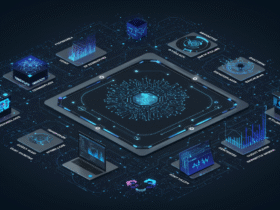

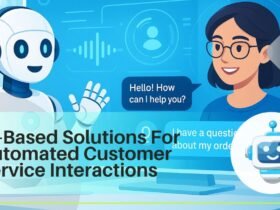
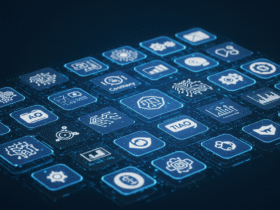


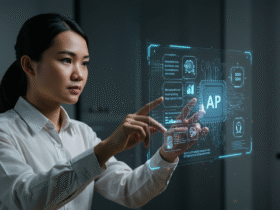
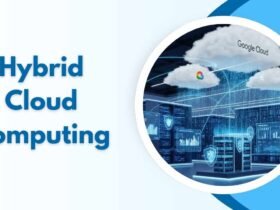
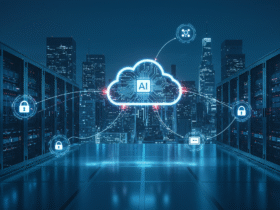

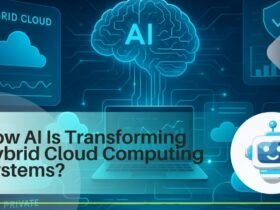
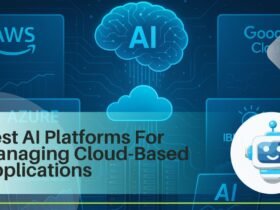
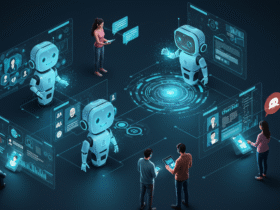
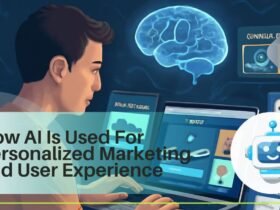
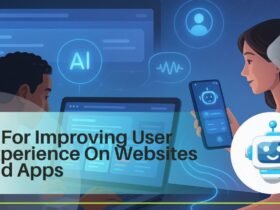
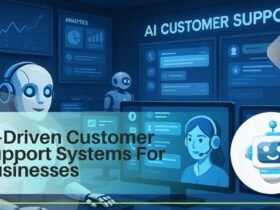

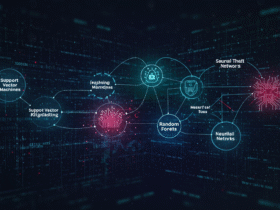



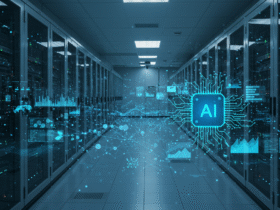
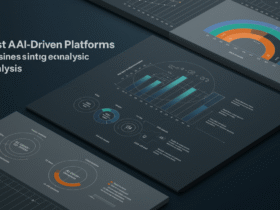


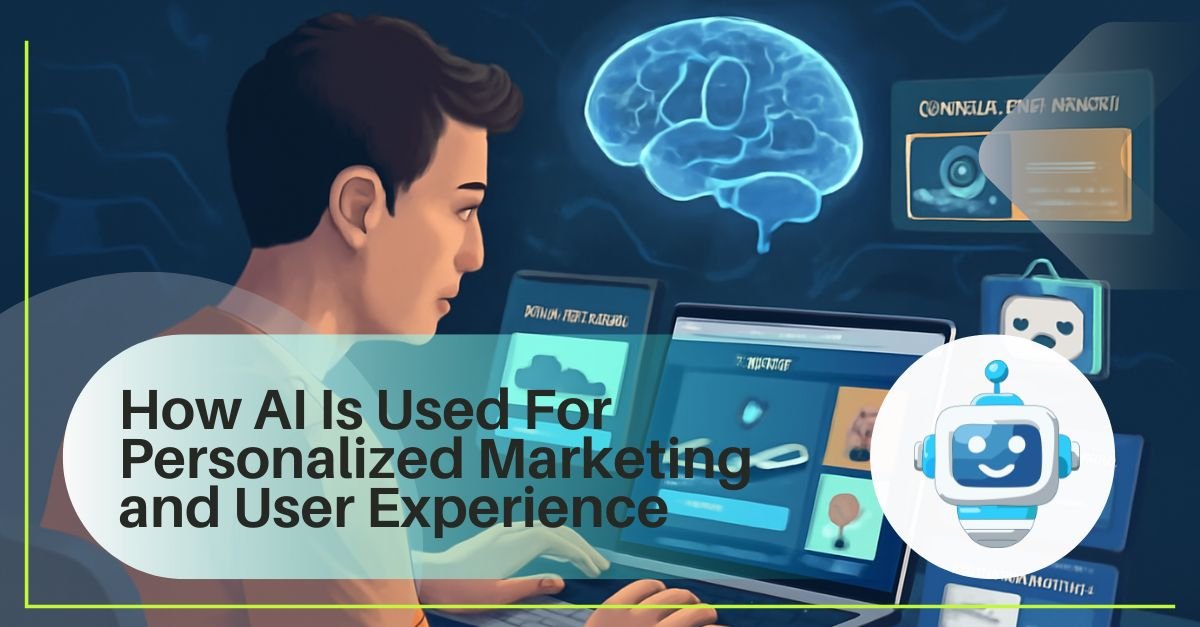

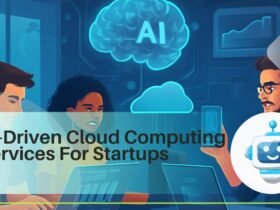
Leave a Reply